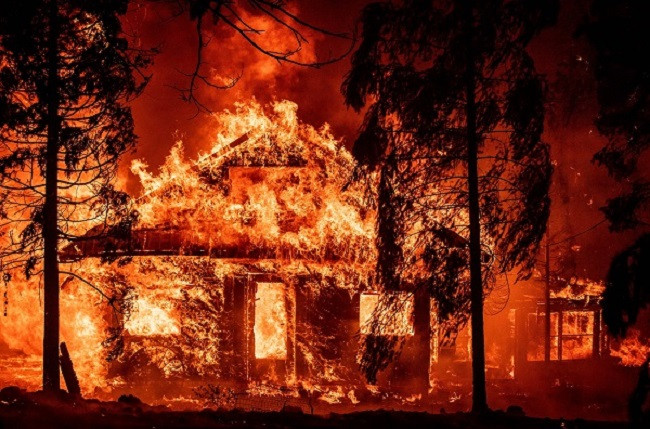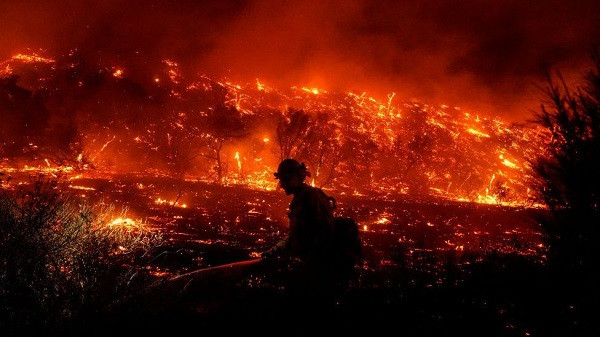Catastrophic Canada Wildfires Ravage North America, Impacting Over 100 Million

IIE Digital Desk : The relentless wildfires that have engulfed vast regions of Canada have inflicted severe devastation, leaving a trail of destruction in North America. With their unprecedented scale and intensity, these wildfires have affected an estimated 100 million people, marking one of the most significant natural disasters in recent memory. Here are the key points highlighting the dire situation
Unprecedented Scale
The ongoing wildfires in Canada have reached an unprecedented magnitude, encompassing vast territories and wreaking havoc on an unimaginable scale. The sheer size of the affected areas has surpassed any previous records, posing significant challenges to emergency response teams and stretching available resources to their limits.
Human Impact
As the fires continue to rage, the lives of over 100 million individuals have been adversely affected. Communities have been uprooted, with countless families displaced from their homes, leaving them in a state of uncertainty and despair. The physical and emotional toll on those affected is immeasurable, as they grapple with the loss of property, livelihoods, and, tragically, the loss of loved ones.
Environmental Catastrophe
Beyond the immediate human impact, these wildfires have inflicted severe damage on the environment, ravaging precious natural resources. Forests, wildlife habitats, and ecosystems have been decimated, with the effects expected to be long-lasting. The loss of biodiversity and the release of massive amounts of carbon dioxide into the atmosphere exacerbate concerns over climate change, amplifying the need for urgent action to mitigate its effects.

Strained Emergency Response
The scale and intensity of the fires have overwhelmed emergency response teams, testing their capabilities to the maximum. Firefighters, volunteers, and support personnel have been working tirelessly to contain the infernos and assist affected communities. However, the sheer magnitude of the disaster has strained resources and prompted calls for additional support from neighboring regions and international aid.
Need for Enhanced Preparedness
The catastrophic nature of these wildfires highlights the urgency of enhancing preparedness measures to mitigate the impact of future similar disasters. Governments at all levels, along with relevant agencies, must invest in advanced monitoring systems, robust infrastructure, and comprehensive emergency response plans. Collaborative efforts and international cooperation are imperative to develop strategies that address the increasing frequency and intensity of wildfires.
As North America grapples with the aftermath of these devastating wildfires, the focus remains on providing immediate relief to affected individuals and communities. Concurrently, concerted efforts must be made to rebuild lives, restore the environment, and implement measures that reduce the vulnerability of regions prone to such calamities. The road to recovery will be arduous, but the resilience and determination of communities, combined with collective action, offer hope for a brighter and more resilient future.
You might also like!
















